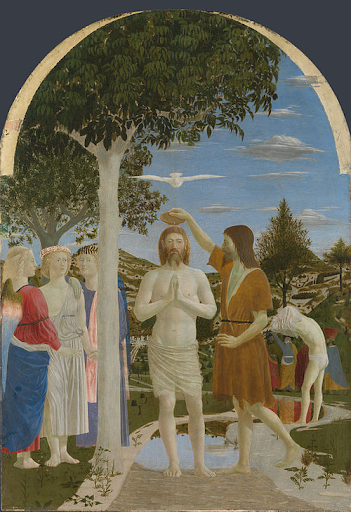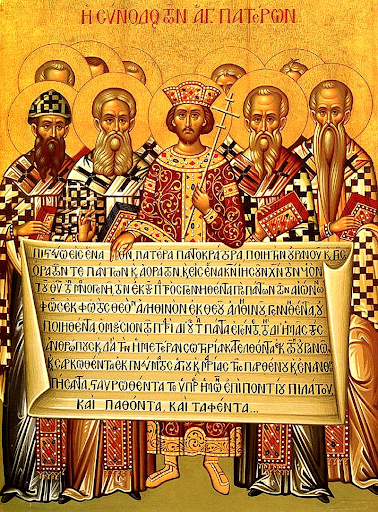Decoding the Trinity (GCSE Religious Studies)
For GCSE Religious Studies students, few concepts are as central, yet as initially puzzling, as the Trinity. Despite its difficulty, defining God as Father, Son, and Holy Spirit is the very core of Christian belief and practice. However, while this doctrine contains profound mystery, this blog will equip you with a comprehensive understanding, ensuring you're ready to ace any related questions in your exams.
Join our expert tutors as we break down the distinct roles of each person within the Godhead, explore the compelling Biblical evidence supporting it, and outline the key criticisms it has faced both from within and outside Christian thought. Let’s dive in!
1.The Role of Each Person
The Trinity is the Christian belief in one God who exists as three distinct persons: God the Father, God the Son (Jesus Christ), and God the Holy Spirit. This isn't about three separate gods – Christians are strictly monotheistic. Instead, it's about one God revealing Himself in three co-equal and co-eternal "persons." Think of it as "three-in-one" or "tri-unity." Lets take a deeper look at the role of each person:
God the Father: Often understood as the Creator and Sustainer of the universe. He is transcendent (beyond the world) but also benevolent and caring. The Father creates the world in Genesis and is commonly identified with the God revealed in the Old Testament.
God the Son (Jesus Christ): The Incarnation of God in human form – fully divine and fully human. Jesus is the Saviour, whose death atoned for sins and brought salvation. He's also immanent meaning that he is active in history and present in the world. This aspect is particularly important for GCSE RS discussions on Jesus's nature.
God the Holy Spirit: The active presence of God in the world today. The Spirit inspires, guides the Church, and empowers believers. Often called the "giver of life." In John 14:26, Jesus tells his disciples that, after his death and ascension, the “... Advocate, the Holy Spirit, whom the Father will send in my name, will teach you all things and will remind you of everything I have said to you”. So, the Holy Spirit continues the work of Christ in the world.
2. Biblical Foundations: Trinitarian Echoes in Scripture
An important point of discussion for your GCSE RS exams is that the specific word "Trinity" isn't found anywhere in the Bible. For Christians, however, the lack of explicit mention doesn't mean the concept is unbiblical; rather, theologians argue that the doctrine is derived from the consistent pattern and implications found throughout various biblical texts, particularly in the New Testament. The Bible reveals God as Father, Son, and Holy Spirit, even if it doesn't use that specific term. Here are some key passages which Christians believe reveal the Trinity:
Creation (Genesis 1:1-3, 1:26): Right from the very beginning of the Bible, there are implications of plurality within God. Genesis 1:1 states, "In the beginning God created the heavens and the earth." Then, in verse 2, "the Spirit of God was hovering over the waters," indicating the active presence of the Holy Spirit. Most strikingly, in Genesis 1:26, God declares, "Let us make mankind in our image, in our likeness." The use of the plural pronouns "us" and "our" is seen by Christians as hinting at the Trinitarian nature of God, a divine "we" at work in creation.
Jesus' Baptism (Matthew 3:16-17): This event is the most explicit New Testament scene showcasing all three persons of the Trinity simultaneously. When Jesus is baptised by John the Baptist, Matthew describes how "the heavens were opened, and he saw the Spirit of God descending like a dove and alighting on him." Immediately after, "a voice from heaven said, 'This is my Son, whom I love; with him I am well pleased.'" Here, God the Son (Jesus) is physically present, God the Holy Spirit descends visibly, and God the Father speaks audibly from heaven, affirming the distinct yet unified presence of all three.
The Great Commission (Matthew 28:19): At the very end of Matthew's Gospel, Jesus gives his disciples a foundational command: "Therefore go and make disciples of all nations, baptising them in the name of the Father and of the Son and of the Holy Spirit." This command is not to baptise into names (plural), but "in the name" (singular), followed by the distinct titles of Father, Son, and Holy Spirit. This singular "name" for three persons underscores the unity of God, while the distinct naming of each person highlights their individual identities within that unity. This is the Trinitarian formula for Christian baptism.
3. The Importance of the Trinity for Christians
For Christians, the Trinity is far more than an abstract concept; it is absolutely fundamental to their faith, worship, and understanding of salvation. For GCSE RS, grasping its significance to Christian belief and practice is vital. Here are some ready-made points for your exams:
Understanding God's Nature: The Trinity provides a rich and comprehensive understanding of who God truly is. It reveals God not just as a singular, distant being, but as a dynamic, relational God existing as the transcendent Father (the loving Creator and sustainer), the relatable Son (Jesus Christ, the Saviour who walked among us), and the immanent Holy Spirit (the comforting, guiding, and empowering presence within believers and the Church). This distinct yet unified nature allows for a fuller grasp of God's power, love, and constant involvement.
Central to Worship and Prayer: The Trinitarian nature of God is woven into the fabric of Christian religious life. Key rituals like the Sign of the Cross explicitly invoke all three persons. Baptism, the entry rite into the Christian faith, is performed "in the name of the Father and of the Son and of the Holy Spirit," directly linking a believer's new life to the Trinity. Furthermore, the core beliefs are affirmed in Christian creeds (like the Nicene Creed), and countless prayers are directed to or acknowledge all three persons.
The Blueprint for Salvation: The entire Christian narrative of salvation is inherently Trinitarian. God the Father initiates the plan out of boundless love. God the Son, Jesus, accomplishes salvation through his incarnation, life, sacrificial death on the cross (atonement), and resurrection, overcoming sin and death. Finally, God the Holy Spirit applies the benefits of salvation to believers, dwelling within them, sanctifying them, and empowering them to live a Christian life. Without the active involvement of each person, the Christian understanding of redemption would be incomplete.
Enables a Richer Relationship with God: The Trinity allows for a truly dynamic and diverse personal relationship with God. Christians can relate to God in prayer as a loving Father who cares for them, an empathetic Saviour (Jesus) who understands their human condition, and a comforting, guiding Presence (the Holy Spirit) who empowers and teaches them daily. This understanding allows for different dimensions of God's character to be experienced and engaged with.
Remembering these key aspects will enable you to articulate why the Trinity is central to Christian faith and practice when answering exam questions, demonstrating a deeper understanding of this core doctrine.
4. St. Augustine On the Trinity
Beyond the biblical evidence, Christian theology has profoundly shaped the understanding of the Trinity, and one of the most influential figures in this development was St. Augustine of Hippo. His monumental work, De Trinitate (On the Trinity) remains a cornerstone for understanding this complex doctrine. Applying Augustine's ideas allows you to develop a sophisticated response in your GCSE RS exams.
Augustine's primary aim was not simply to state that the Trinity exists, but to understand its mystery and, crucially, to defend it against various heresies that challenged core Christian beliefs. He particularly combated Arianism and Modalism (see the next section). Against these challenges, Augustine strongly emphasised the unity and absolute equality of the three Persons within the Godhead, famously articulating the concept of "one God in three persons" or "three persons, one essence (substance)." For Augustine, God is utterly indivisible in His being.
To help grasp this sacred mystery, which he admitted was beyond full human comprehension, Augustine developed his famous "psychological analogies." These are excellent examples to use in your GCSE RS answers as they illustrate how distinct aspects can exist within a single unity, mirroring the Trinity. He drew these analogies from the human mind, which Christians believe is made in the "image of God":
Lover, Beloved, and Love: Augustine saw the Father as the Lover, eternally loving Himself and His creation. The Son (Jesus) is the Beloved, the perfect object of the Father's love, and also the one through whom God's love is revealed to humanity. The Holy Spirit, then, is the very Love (or the bond of love) that eternally unites the Father and the Son. This analogy highlights the relational and loving nature of God.
Mind (Memory), Understanding, and Will: Augustine considered how our own minds work. We have a Memory (our self-awareness and stored knowledge), an Understanding (our capacity to comprehend and reason), and a Will (our faculty of choice and action). These are distinct functions, yet they are all inseparable parts of one single mind. Similarly, the three Persons of the Trinity are distinct, yet eternally united within the one divine essence, working together in perfect harmony.
Augustine argued that the distinctions between the persons are based not on differences in substance (they are all fully God), but on their eternal relationships with each other. For example, the Son is "eternally begotten" by the Father (meaning the Son's existence derives from the Father, but this is an eternal relationship, not a beginning in time). The Holy Spirit "proceeds" from the Father and the Son (meaning the Spirit's existence derives from both, again, as an eternal relationship). These internal relations are what define each person while maintaining their singular divine essence. Augustine's careful articulation of the Trinity became the standard for Western Christianity, providing a robust theological framework that continues to influence Christian thought today.
5. Challenges to the Trinity
While the Trinity is central to Christian faith, it has faced, and continues to face, significant challenges and criticisms. Understanding these helps GCSE RS students grasp the complexity of the doctrine and the theological efforts made to defend it.
a) From Within Christianity (Historical Heresies)
Historically, various interpretations arose that were deemed incompatible with core Christian understanding, leading the Church, and theologians like Augustine, to define the Trinity more precisely.
Modalism: This view argues that God is a single person who simply manifests in three different "modes" or "masks" at different times – acting as the Father (Creator), then as the Son (Redeemer), then as the Holy Spirit (Sanctifier). This denies the distinct, co-existent personhood of the Father, Son, and Holy Spirit. The Church rejected it because it undermines the idea of genuine relationship within God and the true identity of Jesus as God-with-us.
Arianism: Promoted by Arius in the 4th century, this doctrine taught that Jesus, the Son, was a created being, subordinate to God the Father, and not eternal or fully divine. This fundamentally undermined Jesus' ability to truly save humanity, as only God could bridge the infinite gap between God and humanity. Arianism was definitively condemned at the Council of Nicaea (325 CE), which affirmed that Jesus is "of one Being with the Father" (homoousios), meaning he is fully divine and co-eternal with the Father.
b) From Other Monotheistic Religions
The Trinitarian concept is a major point of divergence between Christianity and other monotheistic faiths, who often see it as compromising the absolute oneness of God.
Judaism: As the foundational monotheistic religion, Judaism is based on an uncompromising belief in one God, as famously declared in the Shema: "Hear, O Israel: The Lord our God, the Lord is one" (Deuteronomy 6:4). Judaism fundamentally rejects the Christian concepts of Incarnation (God becoming human) and the Trinity, viewing them as "associating partners with God" – a form of idolatry or polytheism that violates strict monotheism.
Islam: Islam is founded on Tawhid, the absolute and indivisible oneness of Allah (God). The Qur'an strongly condemns any idea of God having a son or partners, viewing the Christian Trinity as shirk (polytheism or associating partners with God), which is considered the gravest sin. In Islam, Jesus (Isa) is a highly revered prophet, but unequivocally human and not divine.
c) Philosophical and Logical Challenges
Beyond theological and interfaith perspectives, the Trinity also faces philosophical and logical questions.
Logical Contradiction: Critics often argue that the Trinity presents a logical contradiction: if God the Father is God, God the Son is God, and God the Holy Spirit is God, and they are distinct persons, doesn't that logically imply three Gods, thus contradicting monotheism? They question how a concept can be a "mystery" if it seems to defy basic principles of logic.
Christian Response: The Trinity asserts God is one in essence or nature, but three in distinct persons. This means the oneness refers to what God is (one divine being), while the threeness refers to who God is (three distinct relational identities: Father, Son, and Holy Spirit). Therefore, God is not one and three in the same respect at the same time, avoiding a direct logical contradiction. While remaining a profound mystery beyond full human comprehension, it is argued not to be illogical.
Lack of Explicit Biblical Statement: As discussed earlier, the precise word "Trinity" is absent from the biblical text. This leads some to argue that it is a later, human-made doctrine developed by Church councils, rather than an explicit revelation from God. This challenges the doctrine's direct scriptural authority.
Christian Response: As we have seen, although the word is not explicitly used in the Bible, Christians believe that passages such as Mathew 3:16-17 reveal the Trinity.
Jesus' Seemingly Subordinate Statements: Critics point to passages where Jesus appears to have limited knowledge or suggests subordination to the Father. For instance, Mark 13:32 states, "But about that day or hour no one knows, not even the angels in heaven, nor the Son, but only the Father." Similarly, John 14:28 quotes Jesus saying, "My Father is greater than I." These verses are cited to argue against Jesus' full co-equality with the Father.
Christian Response: Christian theology typically addresses this by distinguishing between Jesus' divine and human natures. When Jesus speaks of limited knowledge or subordination, it is often understood in the context of his human nature (the Son in his incarnate, humble state) or his voluntary submission to the Father's will in his earthly mission, rather than a fundamental inequality of his divine nature.
Conclusion
While the Trinity remains a profound and sacred mystery, it is undeniably the cornerstone of Christian belief. From its (contested) biblical portrayal, through its careful theological articulation by figures like Augustine, to the persistent challenges it faces, comprehending this doctrine is essential for understanding Christian faith, theory, and practice. For your GCSE Religious Studies exams, a solid grasp of the Trinity isn't just helpful; it's paramount. It equips you to confidently answer complex questions on God's nature, the purpose of worship, the mechanics of salvation, and even how Christian beliefs are defended against criticism, empowering you to demonstrate sophisticated knowledge and achieve those top grades.




